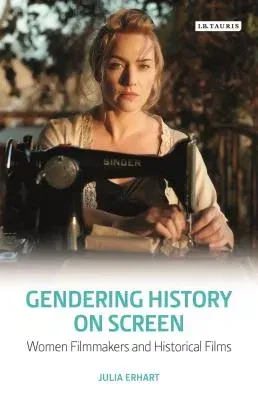Julia Erhart
(Author)Gendering History on Screen: Women Filmmakers and Historical FilmsHardcover, 30 August 2018

Temporarily out of stock
Free Delivery
Cash on Delivery
15 Days
Free Returns
Secure Checkout

Part of Series
Library of Gender and Popular Culture
Print Length
240 pages
Language
English
Publisher
I. B. Tauris & Company
Date Published
30 Aug 2018
ISBN-10
1784535281
ISBN-13
9781784535285
Description
Product Details
Author:
Book Format:
Hardcover
Country of Origin:
US
Date Published:
30 August 2018
Dimensions:
21.84 x
13.72 x
2.29 cm
Genre:
Feminine
ISBN-10:
1784535281
ISBN-13:
9781784535285
Language:
English
Location:
New York
Pages:
240
Publisher:
Weight:
453.59 gm